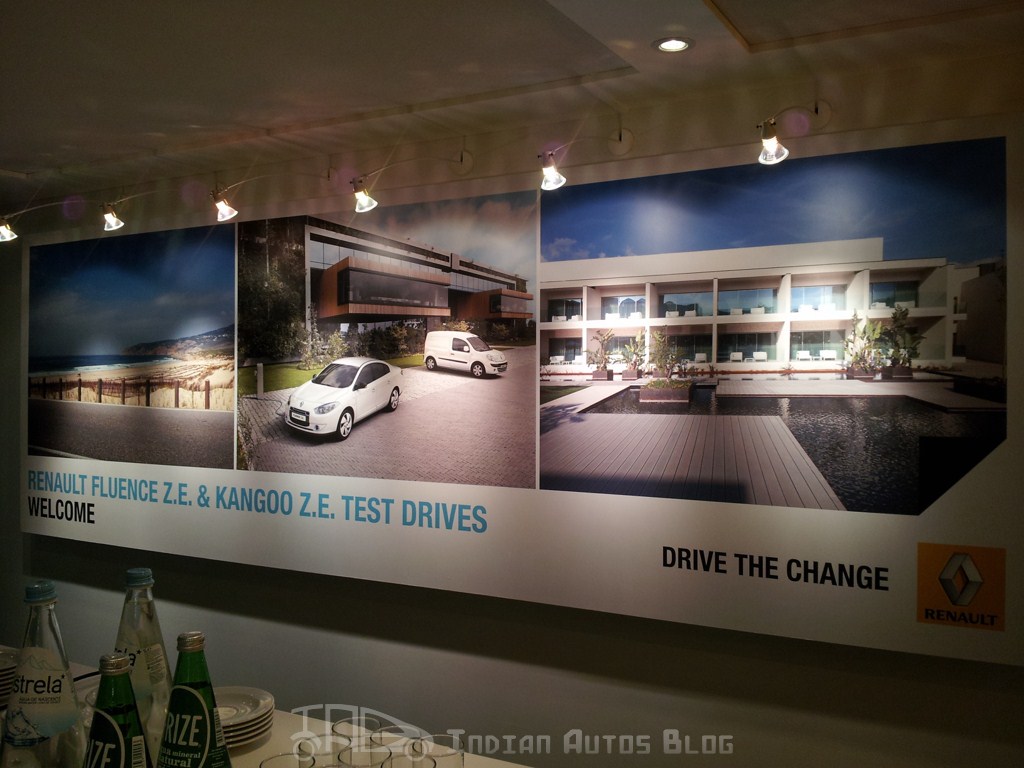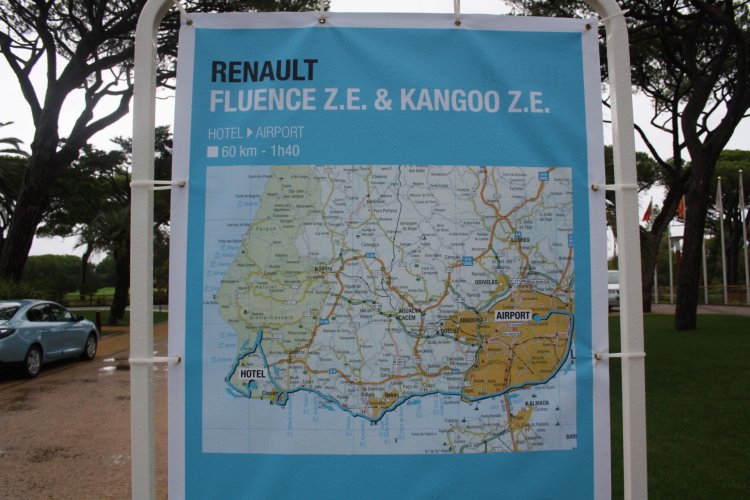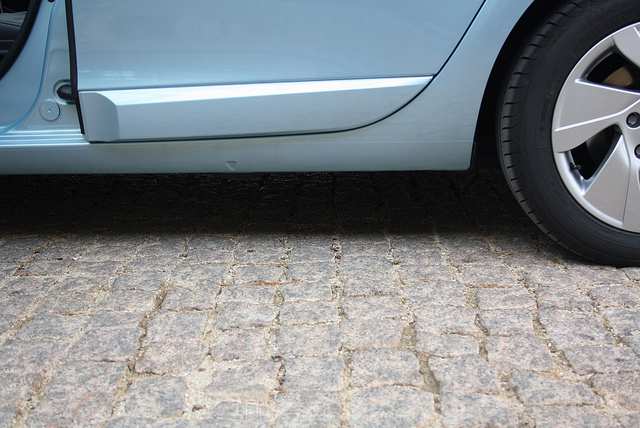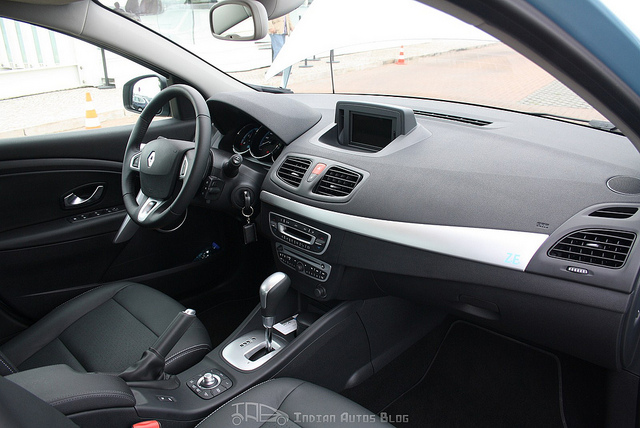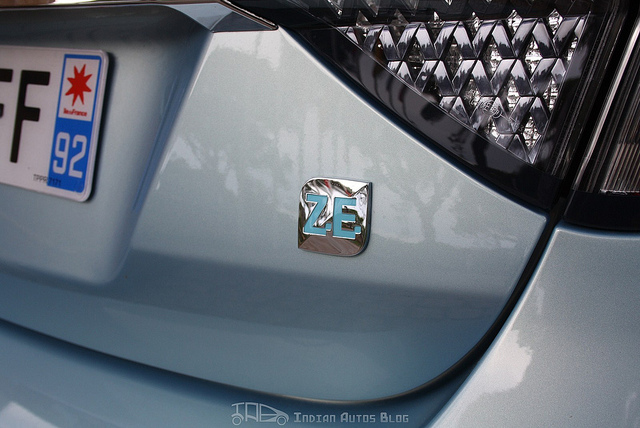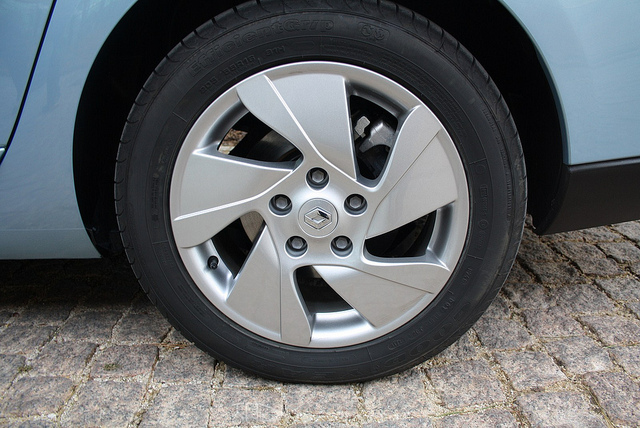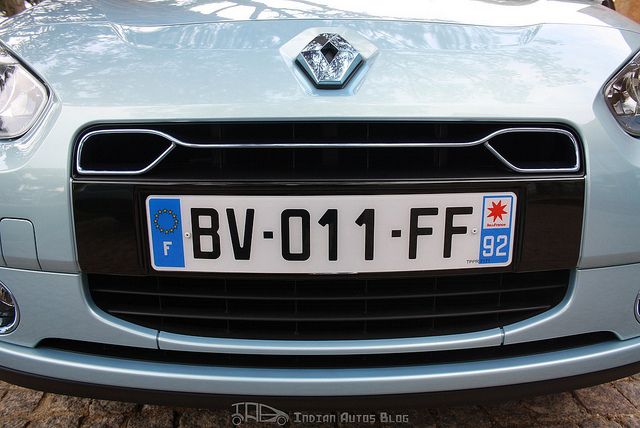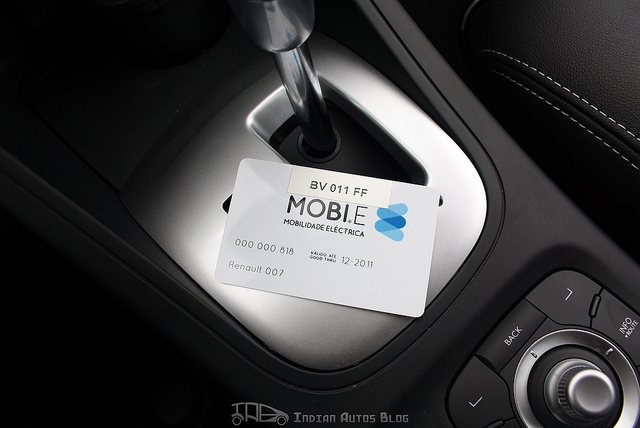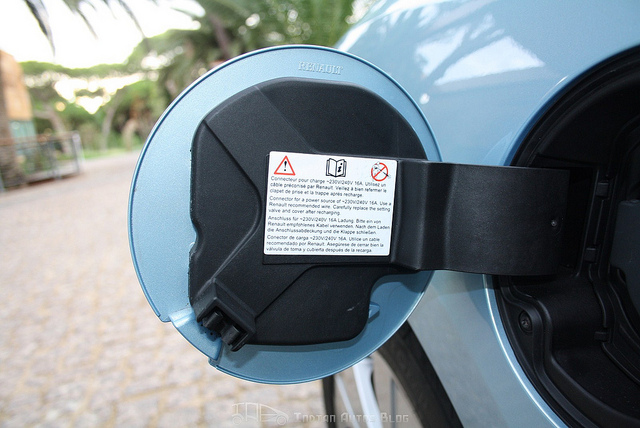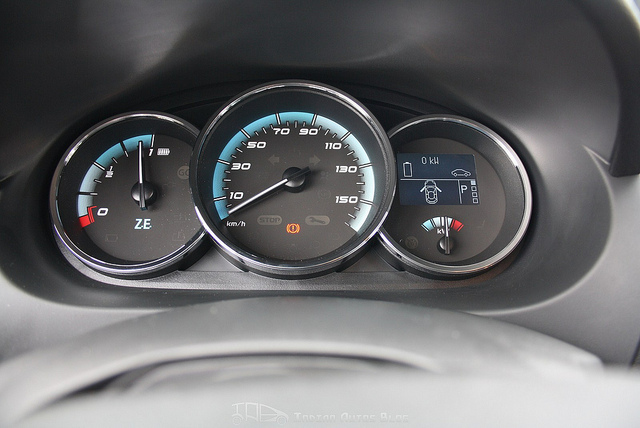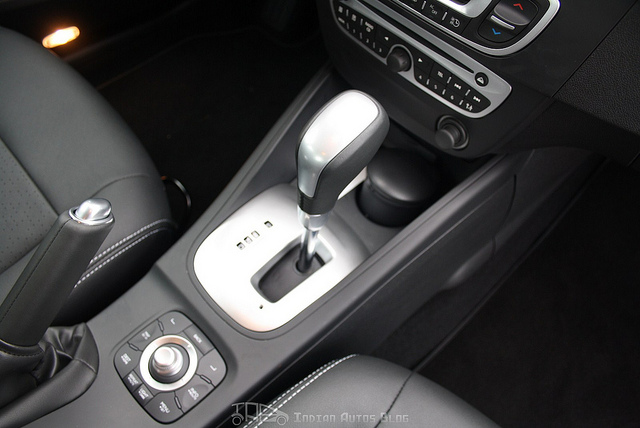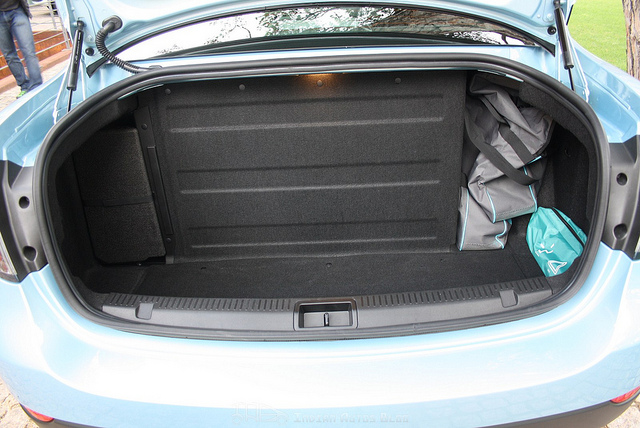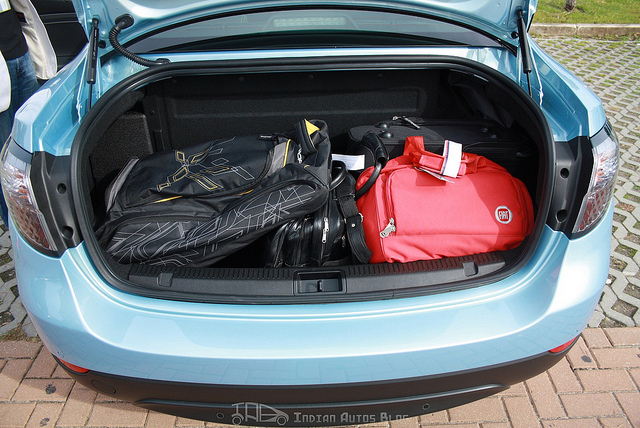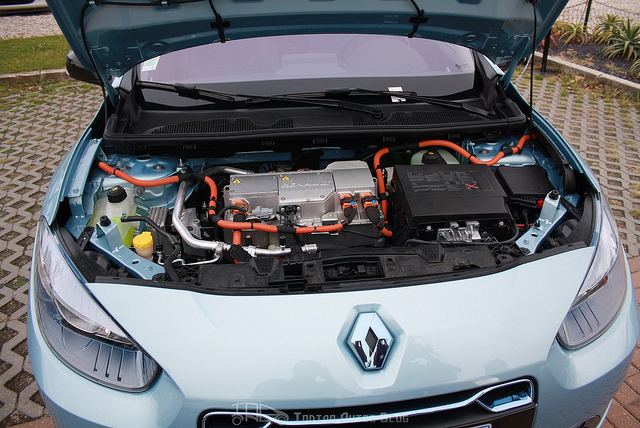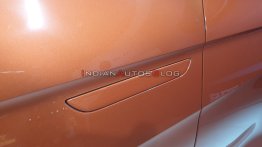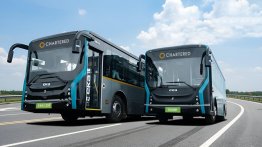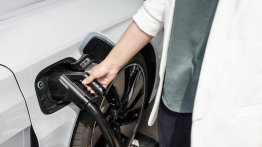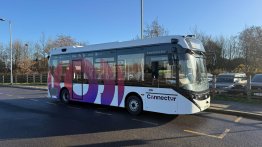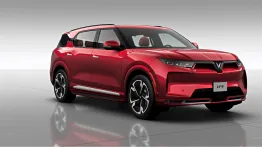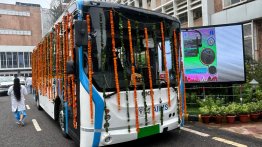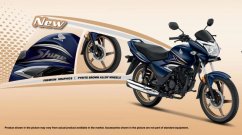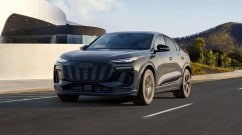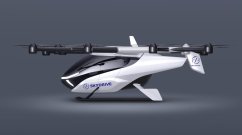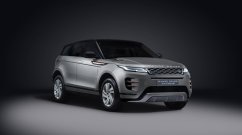Day 1 of the Renault Electric Vehicle media drive in Portugal was a very brief one with about 40 minutes spent behind the wheel of the Fluence Z.E. (stands for Zero Emission). This is Renault's first electric vehicle, launched in some parts of Europe last Friday. We were provided a chance to drive them through the city of Lisbon to see whether this is the next big thing in the auto world.
The journey started at the Airport and concluded at the Onyaria Golf Resorts situated at Cascias, about an hour away from the airport.
The drive started with a briefing at the Lisbon Airport basement parking. While serving refreshments officials explained the route for the day. The journey took us through the city which at some points bordered the coast.
The Fluence Z.E. ditches the 1.5-liter dCI motor for a Synchronous AC motor that produces 70KW of power and 226Nm of torque. It has a 398 Volt Lithium Ion battery case that produces 22kWh and weighs 280 kilograms. The battery pack is situated in the boot while the motor and controller are placed under the hood.
It enables the Fluence to reach a top speed of 135kph with a 0-100kph time of 13 seconds.
The range of the Fluence EV mentioned in the spec sheet is 185km, but in real world conditions much of it depends on driving habits and style.
Fluence diesel vs Fluence Z.E. - Noticeable differences
Left - Z.E. badge on the boot lid conveys to fellow motorists that you are the tree-hugging type of driver. Right - Special tail light cluster sectioned like a beehive.
Left - Low rolling resistance tires with specially designed rims. Right - Blue tinted chrome decorations is another key visual differentiator.
Observations made on driving the Fluence Z.E.
I'll skip to the most interesting point - The electric vehicles knows not turbo lag and sweet spot. 100% torque is available right from the start. This means whenever you put your foot down, the car surges forward with the same intensity, regardless of your speed. There's the same kind of acceleration available every time, all the time. You are in the power band the moment you start the car.
Twist the key and there's no noise. A tick-tock noise (generated when the indicator is switched on, only at a higher pitch) as you twist the key indicates you are ready to go.
You are unsure about the vehicle status as you are waiting for an audible growl or vibration as in a regular car.
While on the go, the powertrain generates hardly any noise. Put your foot down on the accelerator, and a distant whistling sound is heard. Vibration is another word that doesn't feature in this dictionary.
The audio clarity on standard music system in the absence of engine noise is appreciably better.
When you take your foot off the accelerator, the car slows down as if an invisible someone is braking. You shed speed faster when you are you are not dabbling with the accelerator pedal as the system converts the kinetic energy of the wheels into electric charge for the batteries. I saw this as a driver aid when it came to negotiating corners - without using the brake pedal you slow down before the bend.
Renault increased the rear overhang by 13cm to house the batteries, but it still eats into the luggage volume reducing it to 317 liters from the generous 530 liters of the standard model. Not very impressive considering owners use it for driving long distances.
Renault achieved a perfect 50:50 weight distribution by placing part of the driveline on the front axle and part of the battery on the rear axle. It lowers the center of gravity and the body roll is noticeably less. The road holding convincing to push the car through the corners.
On board equipment is untouched. It has the same comfort, space and safety features as the diesel or petrol variant.
Renault Fluence Z.E. Image Slideshow
Can't see the slideshow above? Head over to the Renault Fluence Z.E. Flickr gallery to see them.
